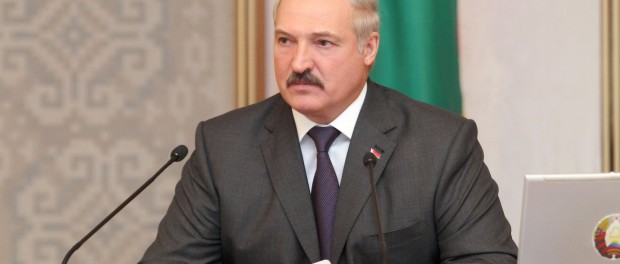Lukashenko’s slip up causes trouble during talks with investors
Lukashenko scares off investors by mentioning debt restructuring
 Sample caption
Sample caption
Belarus might restructure its debt, casually said Alexander Lukashenko during a press conference last Thursday. According to the Financial Times this slip of the tongue frightened investors into selling off Belarusian external bonds.
The price of bonds for $1 billion maturing this year has collapsed and the yield sky-rocketed from 14% to 46.5%. The yield for bonds of $800 million with a mature date in 2018 increased from 12.4% to 19.5% on Wednesday.
Several hours later Lukashenko stated that he actually meant to say that debt will simply be refinanced and that investors should not panic, he said the solution was getting installment loans over others.
“The Republic of Belarus has the necessary amount of resources and financial instruments to carry out its debt obligations in 2015,” said the Ministry of Finance (MOF). “Restructuring debt is out of the question. The government together with the National Bank is working on refinancing a part of the debt by offering bonds on the internal and external markets, and by getting foreign loans,” pointed out the Ministry.
The markets have cooled down, but bond yield still remains high.
Investors fear that Belarus could have problems financing its debt; more over the crisis in Russia has spread to its neighbour. This year Belarus will need to spend $4 billion on debt payments, its reserves of foreign exchange and gold have shrank to $5 billion.
The MOF planned to issue $1 billion worth of Eurobonds in 2015. According to TUT.BY the Ministry requested for new bonds to be issued. “A number of investment banks were assigned to do so; they are also potential owners of these bonds. The MOF is interested in the prospects of bond placement,” reported a source from the financial sphere. “And then Alexander Lukashenka says something like that. Everyone is confused. The investors reacted immediately. The slip up has, of course, caused additional and unnecessary problems for the MOF. After all, the leading business news sources in the world reported about this slip up (Bloomberg, Wall Street Journal, Financial Times),” added the source.
According to the business news source Vedomosti, such slip ups of national leaders, though they do happen rarely, can cause sudden changes in financial markets. For example, in 2002 US President George Bush said that he discussed the issue of devaluating the yen with the Prime Minister of Japan. Having made the assumption that the leaders of the two countries made a decision to weaken the yen, the players on the markets played down the currency. Before Bush made the statement the dollar cost 132.55 yen and after a few minutes it became 132.8 yen for a dollar. The Singapore dollar, the Korean won and the Taiwan dollar also dropped in value. Greater consequences were avoided thanks to the fact that that day was a federal holiday – Presidents’ Day. Not long after the Presidents slip of the tongue the White House released a statement which clarified that Bush actually meant deflation.
In 2001 Russian President Vladimir Putin while visiting the flood devastated city of Lensk stated that he is ready to sign a decree to sell gold and diamonds to help the victims. The price of gold dropped immediately from 283.5 down to 278.7 per ounce. The next day the President clarified that he actually meant that he would free the Sakha Republic from its gold loans.
Original text from tut.by






Leave a comment